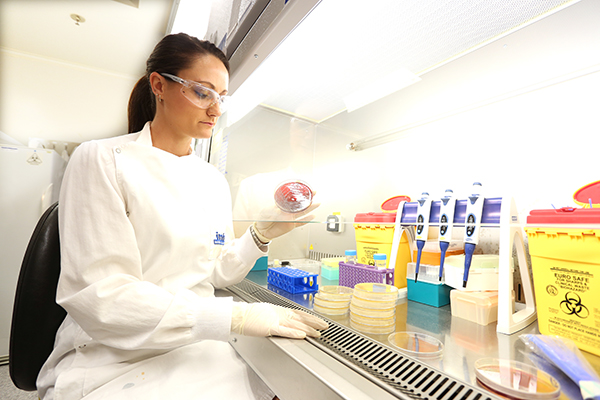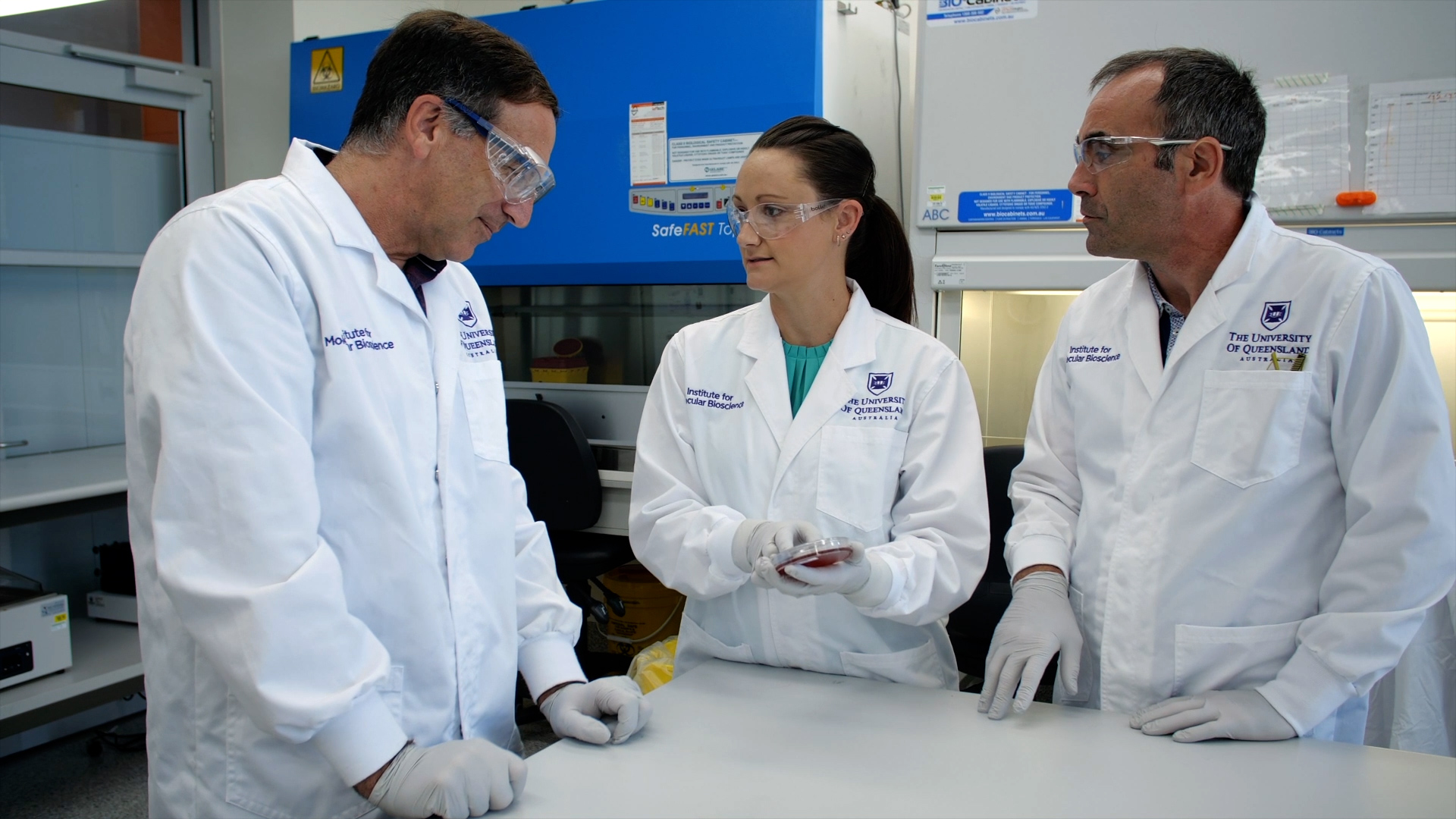A passion to fend off superbugs fuelled by the passing of a close relative and working with a great team have fuelled Dr Alysha Elliott’s research to discover new ways of tackling anti-microbial resistance.
She has won funding to take her work to less-developed countries—an ambition she is juggling with raising two young sons.
Tackling bacteria resistant to antibiotics
Superbugs are the most dangerous drug-resistant bacteria—those that are resistant to multiple classes of antibiotics. They pose a growing threat to the treatment of sepsis, pneumonia, urinary tract and wound infections.
“There has been a lot of media coverage about superbugs, but on an individual level, the message often doesn’t get through until it happens to someone you care about,” Dr Elliott said.
“Then you realise, for some infections, there really aren’t any treatments left.”

When infections run riot
Dr Elliott had that ‘close to home’ moment when her grandfather passed away from kidney failure.
“It really hit me then, when he got an infection and the antibiotics couldn’t save him—this happens every day in hospitals, but this time it happened to someone I love.”
Modern medicine relies on antibiotics
Dr Elliott said the success of antibiotics has led to them being taken for granted.
“Antibiotics are wonder drugs, saving lives every day. Modern medicine relies on them for many types of surgery and for patients with compromised immune systems like chemotherapy patients, but the discovery of new antibiotics has been underfunded and pharmaceutical companies have exited the area.
“That’s why our research at the Institute for Molecular Bioscience is so necessary. We are looking at creative ways to tackle this problem and help stem the growing tide of deaths from drug-resistant infections.”
Reviving older antibiotics at IMB

Dr Elliott has recently been awarded funding to revive older antibiotics that are increasingly ineffective against resistant bacteria, by coupling them with non-antibiotic drugs called ‘potentiators’.
“More people die every day of infection than some other diseases, but it’s just not known or talked about as it is usually the kidney failure, heart surgery or cancer which is written up as the cause of death.”
While much of the world’s attention has been focused on preventing and treating viral infections due to the COVID-19 pandemic, Dr Elliott argues that the pandemic has also highlighted the need for research into new antibiotics, which treat bacterial infections.
“It’s estimated that a staggeringly high amount—around 70 per cent—of COVID-19 patients in the USA have been treated with antibiotics, with the assumption that there would be a secondary bacterial infection. That’s a worrying overuse of antibiotics that we’d like to avoid.
Saving lives by sharing expertise
“The power of science to develop a vaccine so fast has been amazing, but the different challenge with bacterial resistance is that there won’t be a vaccine—each bacterium is different and we need a wide variety of treatment options and diagnostics to save lives.”
Seeing the global impact of her research is what gives Dr Elliott the passion for her work.
“We have also received funding from a multinational public-private partnership, CARB-X, to work with low- and middle-income countries where antibiotics are freely available, so levels of antimicrobial resistance are really high.
“We can share our expertise and technologies with researchers in countries such as Pakistan, Nepal, Egypt, Nigeria, Brazil, Thailand and Indonesia so they can genetically sequence resistant bacteria strains in real-time as they emerge.
“Our hope is that we can restore cheaper treatments for infections to these countries that need it most, which will benefit the entire global community.”
A great team at IMB

Dr Elliott was attracted to the wealth of experience at IMB’s Centre for Superbug Solutions, especially its industry expertise.
“My advice to anyone going into research is to find a diverse network of mentors early on, which I have been able to do throughout my career at IMB; and find the right team to support you.
“I’ve found a great team which has a mix of biologists and chemists, some with commercial backgrounds—this combination provides an inspiring platform to tackle superbugs from all angles and ensure our work is suitable for translation into new treatments and diagnostics.”
Although her work is having global impact, Dr Elliott’s strongest source of inspiration is closer to home.
“I have to say that my biggest achievement is my two sons. I love spending time with them, but I also think it is important to show my boys how a woman can balance a career and home. It’s sometimes challenging, but always rewarding.”
